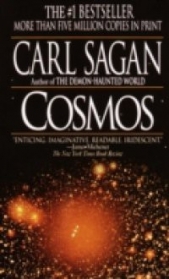Образ человека будущего, Том 7 (СИ)

Образ человека будущего, Том 7 (СИ) читать книгу онлайн
На основе предшествующих трех монографий Международное философско-космологическое общество начало выпуск научного журнала Future Human Image, в котором представлены современные мировые исследования образа человека будущего. Журнал охватывает области нейронаук, педагогики, философии образования и психологии. В данном выпуске представлены работы специалистов из США, России, Украины, Бразилии, Южной Африки, Испании, Казахстана. Журнал публикует исследования на русском, английском и украинском языках
Внимание! Книга может содержать контент только для совершеннолетних. Для несовершеннолетних чтение данного контента СТРОГО ЗАПРЕЩЕНО! Если в книге присутствует наличие пропаганды ЛГБТ и другого, запрещенного контента - просьба написать на почту [email protected] для удаления материала
Ostapenko, Andrey. The Process of Development and Types of Pedagogical Diagnostics. In Future Human Image. Volume 4, 2014: 82-88.
Ostapenko, Andrey, and Alexander Shuvalov. The Way to the Complete Education of a Man.
In Future Human Image: Whom and How to Educate in the Rising Generations? Edited by Oleg Bazaluk. Volume 2, 2012: 34-51.
Panarin, Alexander S. Orthodox Civilization in the Global World. Moscow: Algorithm, 2002. Panarin, Alexander S. Temptation of Globalism. Moscow: Eksmo-Press, 2002.
Popper, Karl R. Open Society and its Enemies: In 2 volumes. Moscow: Phoenix, 1992. Schur, Edwin M. Our Criminal Society: Social and Legal Sources of Crime in the US. Moscow:
Progress, 1977.
Sorokin, Pitirim A. Man. Civilization. Society. Moscow, 1992.
Statement of the President to Federal Assembly. The President of Russia. http://www.kremlin. ru/events/president/news/50864
Svendsen, Lars. Philosophy of Evil. Moscow: Progress-Tradition, 2008.
44 Future Human Image. Volume 7, 2017
Evil as a Subject of Sociological Cognition: Methodological Reflections by Temyr Khagurov
Weber, Max. Selected Works. Moscow: Progress, 1990.
Zimbardo, Philip George. Stanford Prison Experiment. In Pines, Eyala, and Maslach Christina. Practical Work on Social Psychology. St. Petersburg: Piter, 2000: 296-320.
Zimbardo, Philip George. The Lucifer Effect: Understanding How Good People Turn Evil.
New York and London: Random House, 2007.
Future Human Image. Volume 7, 2017 45
Pedagogy of Peace and Philosophy of War: the Search for Truth
Serhiy Klepko - Doctor of Philosophy, Associate Professor
M. V. Ostrogradsky Poltava Regional In-Service Educator Training Institute
(Poltava, Ukraine)
E-mail: [email protected]
Peace pedagogy (German: Friedenspedagogik) and the Peace education are identified as relevant educational paradigm and set of educational projects aimed at solving problems of teaching non-violence and the capacity for peace in the context of the democratic movement for peace. There is a set of reasons to state that the education system of the world depends not only on technological trends and mastering the sum of strategies of war and peace but, first of all, on what extends the whole education is true for its subjects and able to provide research on the ultimate question of social and personal life, including eternal mankind"s dream for peace. This paper describes methodological role for pedagogy of peace of geophilosophy as a concept to solve socio-economic conflicts in the dimensions of truth and earthly life in which modern geo-philosophical research carried out to find a man"s place in the world and territory for him.
Key Words: Peace pedagogy, Peace education, the truth, being, geophilosophy
Peace pedagogy and Peace education within international programs and critical educational literature are identified as important aspects of education [Suvorova, 2008]. Peace pedagogy is seen as educational paradigm and pedagogical project those considered extremely important and worthy of thorough study in the context of the democratic movement for peace [The
Education, 2016].
However, peace education is not modern or even postmodern phenomenon. German theologian and religious teacher Karl Ernst Nipkow in his fundamental work "Der schwere Weg zum Frieden: Geschichte und Theorie der Friedenspädagogik von Erasmus bis zur Gegenwart" [Nipkow, 2007] doing his pioneering research in the history and theory of Peace pedagogy, analyzes the flagship texts of the outstanding "teachers of peace" on the problem "Is it possible to teach people the non-violence and capacity for peace?", sums up 500 years of discourse "theology - violence - war" and develops his own "theory of peace pedagogy" which is based on the terms of enhanced global responsibility, empathy and trust.
On this time, some researchers identify crudity of philosophical foundations of peace pedagogy. Some studies of possible ethical and philosophical foundations of peace education provide only fragmental reasons for it and do not holistic and integral understanding of the culture of peace [Page, 2008; McGregor, 2014]. Even more concerning is the state of theory and practice of Ukrainian peace pedagogy, where the leading role belongs to the methods of word and literary influence.
Problems of education through the lens of peace, forming peacemaking attitude of pupils and students in Ukraine are solved in theoretical studies, too (Viktor Andruschenko
╘ Klepko, Serhiy, 2017
46 Future Human Image. Volume 7, 2017
Pedagogy of Peace and Philosophy of War: the Search for Truth by Serhiy Klepko
[Andrushchenko, 2014], Olena Bezkorovaina [Bezkorovaina, 1999], Anatoliy Demianchuk [Demianchuk & Demianchuk, 2000], Stepan Demianchuk [Pedagogy of Peace, 1995]); in educational practice, for one, Ukrainian Movement "Educators for peace and mutual understanding" actively encourages teachers to peacemaking activities, promotes the culture of peace; secondary schools award a title of "school of culture of peace" and the peace pedagogy is its theoretical basis. However, the "The National Report on the Status and Prospects of Education Development in Ukraine" (2016), which intends to be "comprehensive analysis of the status and prospects of development of national education during the 25-year period of independence of Ukraine" [National Report, 2016], does not mention the presence in Ukrainian educational space of peace education, peacemaking activities in education.























